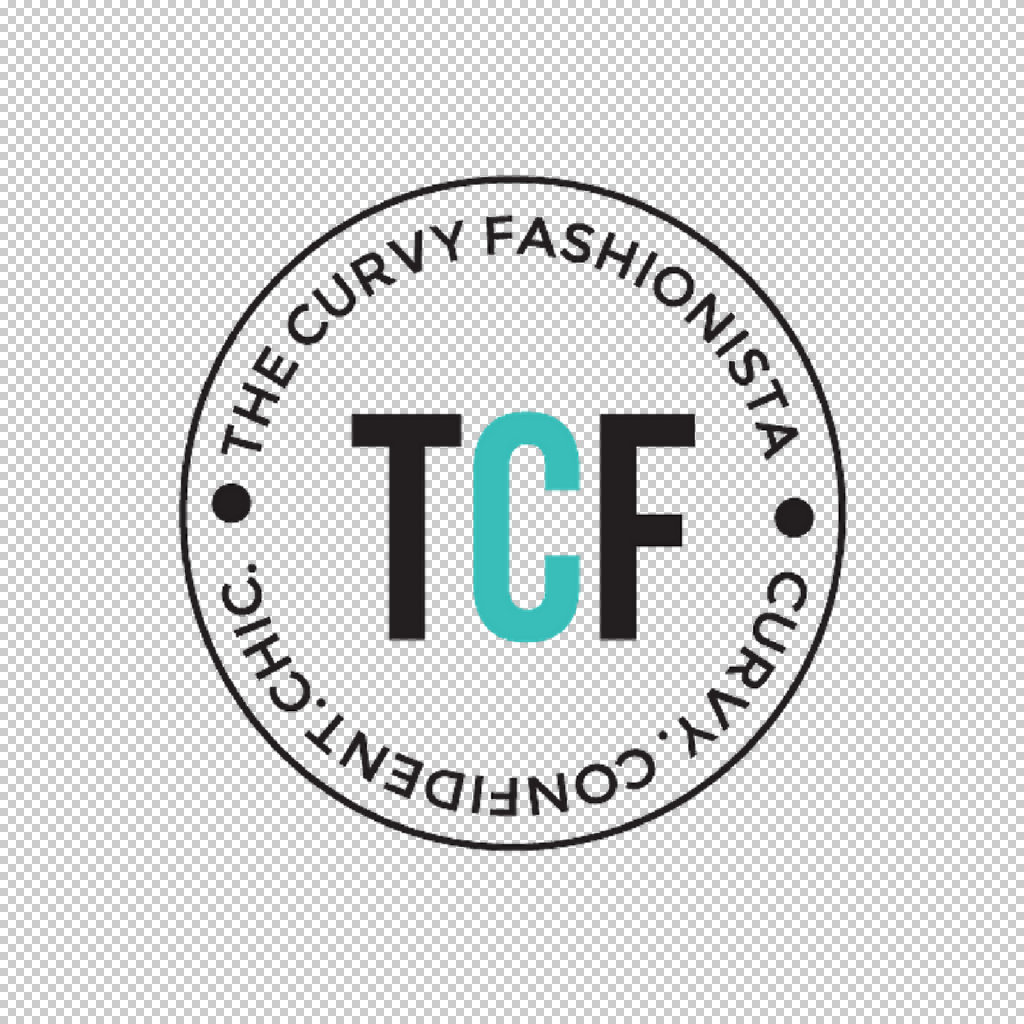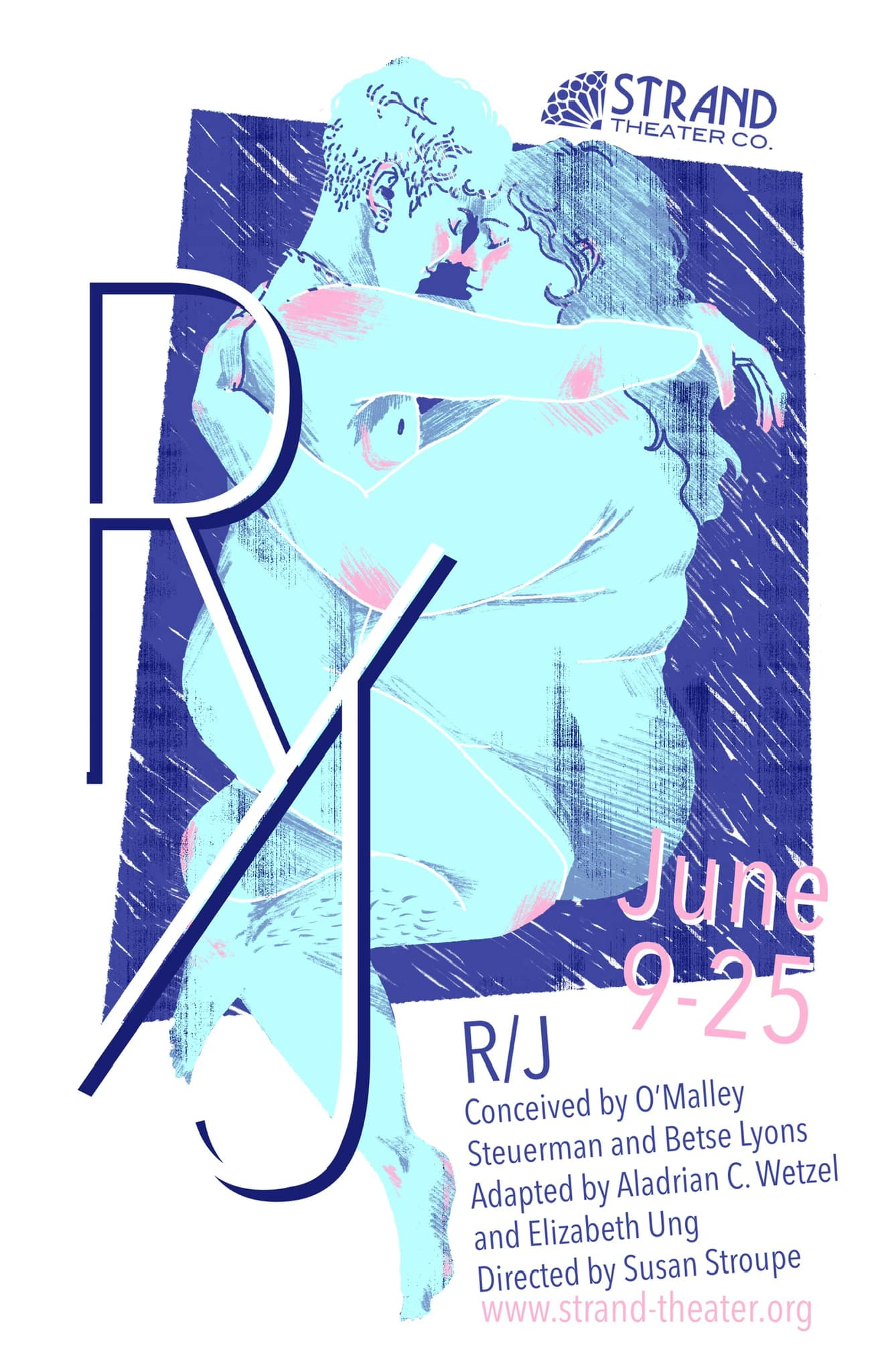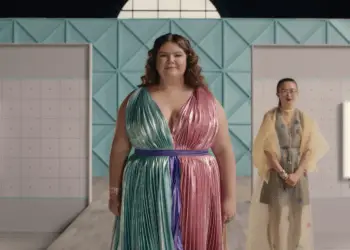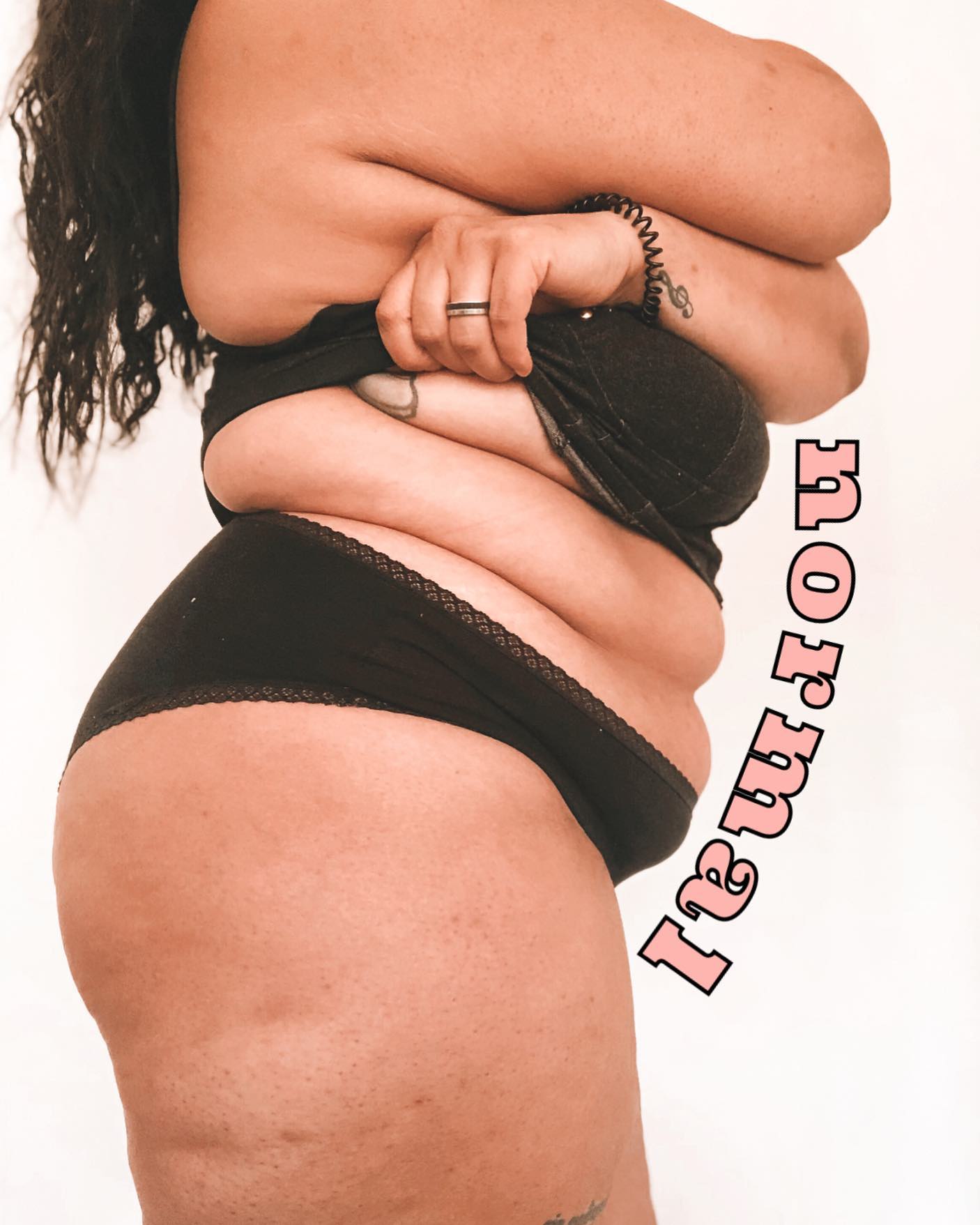Remember our prior article about fat representation in media and discussion of the movie The Whale? Let’s talk about representation done right! It was on a smaller scale and for a brief run, but we want to share all the good moments with you!
R/J was based on Romeo and Juliet, a Shakespeare classic, but not the way you have seen it before! It was completely rewritten by a duo of queer theater activists and featured fat, queer, trans, non-binary, and BIPOC actors.
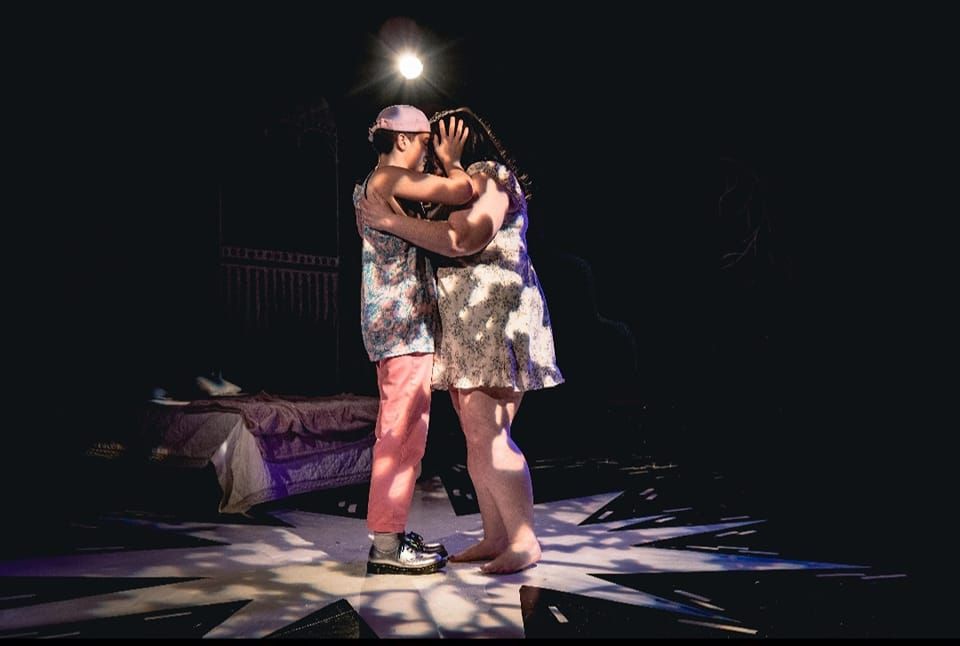
The Strand Theater Co located in Baltimore, MD was the stage for one of the best, most relatable, inclusive productions we have ever witnessed.
Fat Representation in R/J Delivered!
There were so many poignant moments within this show. One of the most relevant to our readers would be the scene where Juliet, played and created by Betse Lyons (she/her), discusses her experiences with fatphobia.
For some context, although there are some parts of this show that were pulled from the Shakespeare script, there were also additions of modern-day language, social media, and pop culture references, especially within the music selection.
The topic of fatphobia comes up in the second half of the show. Juliet is told by her lesbian parents that she is going to be forced into a marriage with the princess, whom Juliet has known since they were kids.
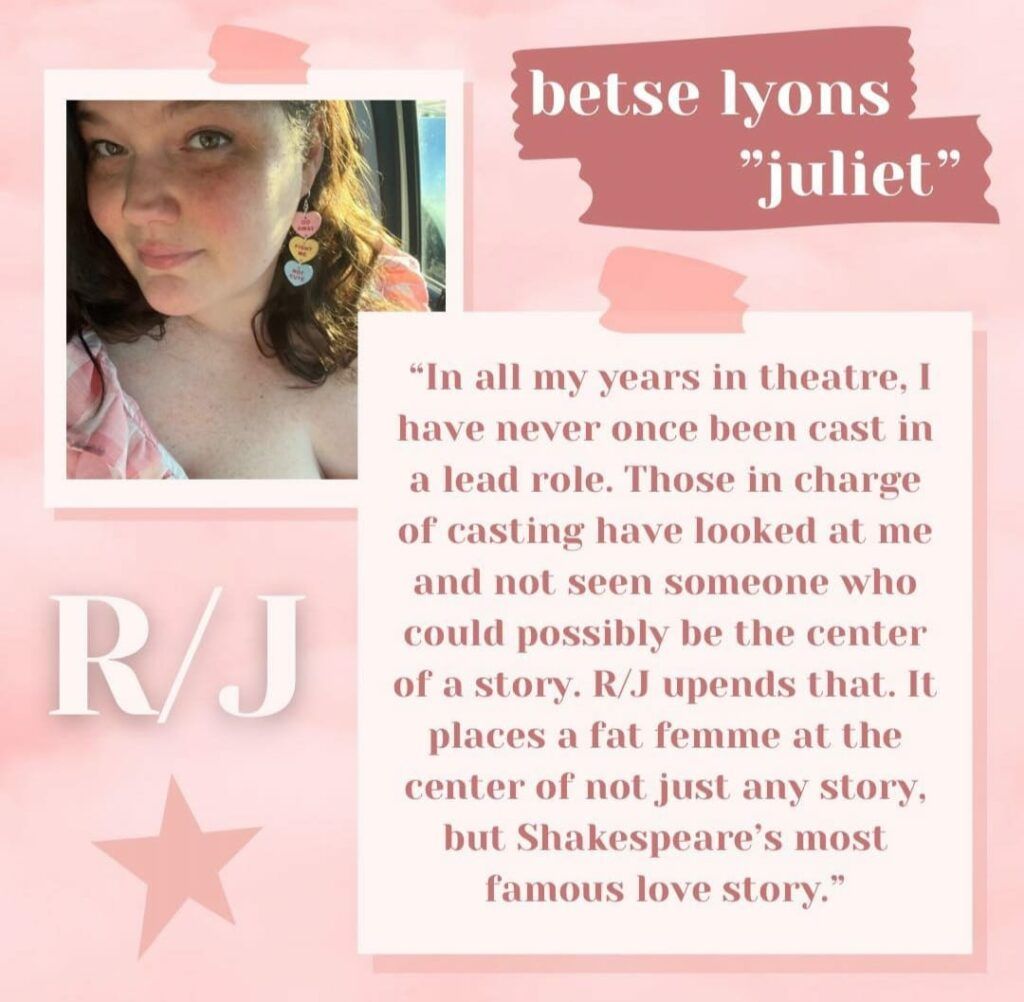
Juliet describes how they used to be very close friends but as she hit puberty and her body began to change, the princess started to treat her like she was invisible. She also goes on to talk about how romantic relationships cause people to get “weird” about their preferences.
Keep in mind, this is delivered while her character is wearing a crop top and skirt – the most appropriate attire to discuss how fat women are treated.
In a following scene, Juliet’s mother proceeds to make several fatphobic comments to her. “The princess has excellent chefs and personal trainers.” “Maybe wear something that fits you.” “We can’t just pull something in your size to wear.”
We cannot convey how seen the plus size folks in the audience felt during these scenes, myself included. There were audible gasps and a very vocal, visceral reaction from the audience during these scenes.
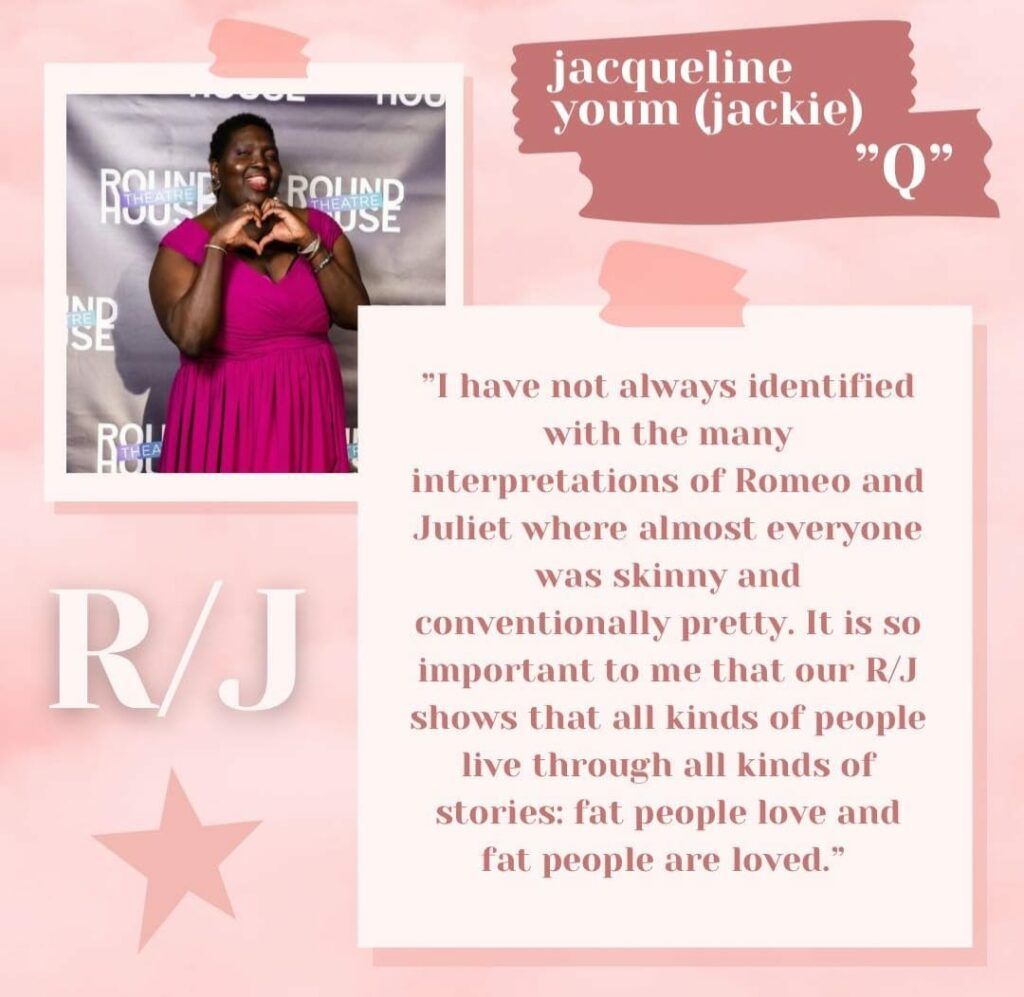
How many of us have felt invisible? How many of us have had a romantic interest turn us down just because of how we look? How many of us have heard those same fatphobic comments delivered so nonchalantly, as if we should just expect them?
According to the Strand Theater Company’s Facebook page, “Unfortunately, much of our society still thrives on ignoring the fact that fat bodies exist. The stage is no exception to this rule; in fact, it is a primary arbiter. Depending on how you classify it, 40-70% of American adults are fat, and that demographic is painfully underrepresented on our stages. This is exactly why we created R/J, to give people a chance to see just how beautiful it can be to allow marginalized bodies to breathe new life into characters we thought we knew. Fat people deserve to have their stories told.“
Queer and Trans Representation in R/J
There was an absolutely gorgeous moment, also in the second half of the show, where Romeo, played and created by O’Malley Steuerman (they/thons), and Juliet remove their outer garments before going to bed together.
This stood out as such a profound moment because Juliet was simply in a bra and underwear juxtaposed against Romeo’s surgical scars from gender affirming surgery (a common surgery for trans masc or non-binary individuals).
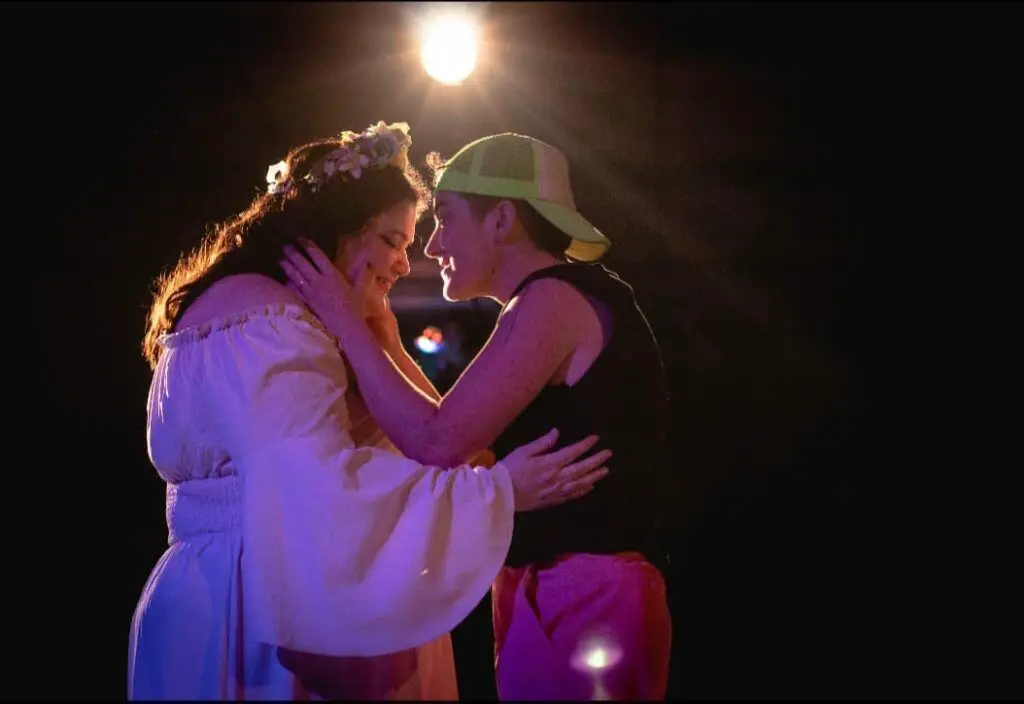
There was this moment of acknowledgment about how all bodies are beautiful and absolutely deserving of love- trans bodies, fat bodies, queer bodies, disabled bodies- every single person is worthy.
Romeo simply states, toward the beginning of the show, “I want a love that makes me feel like myself.” This was a line that likely hit home to a lot of queer folks in the audience. Based on personal experience, coming out can be hard.
Discovering who you are and accepting yourself can be a tough journey. Dealing with outside judgement can be incredibly difficult. To find someone else who has shared similar struggles can really make you feel seen, understood, and make you comfortable enough to be your true authentic self.
The Strand Theater Company’s Facebook page also states, “Queer love is important. Queer love is everything. Queer love is being seen and accepted, as nothing other than yourself.”
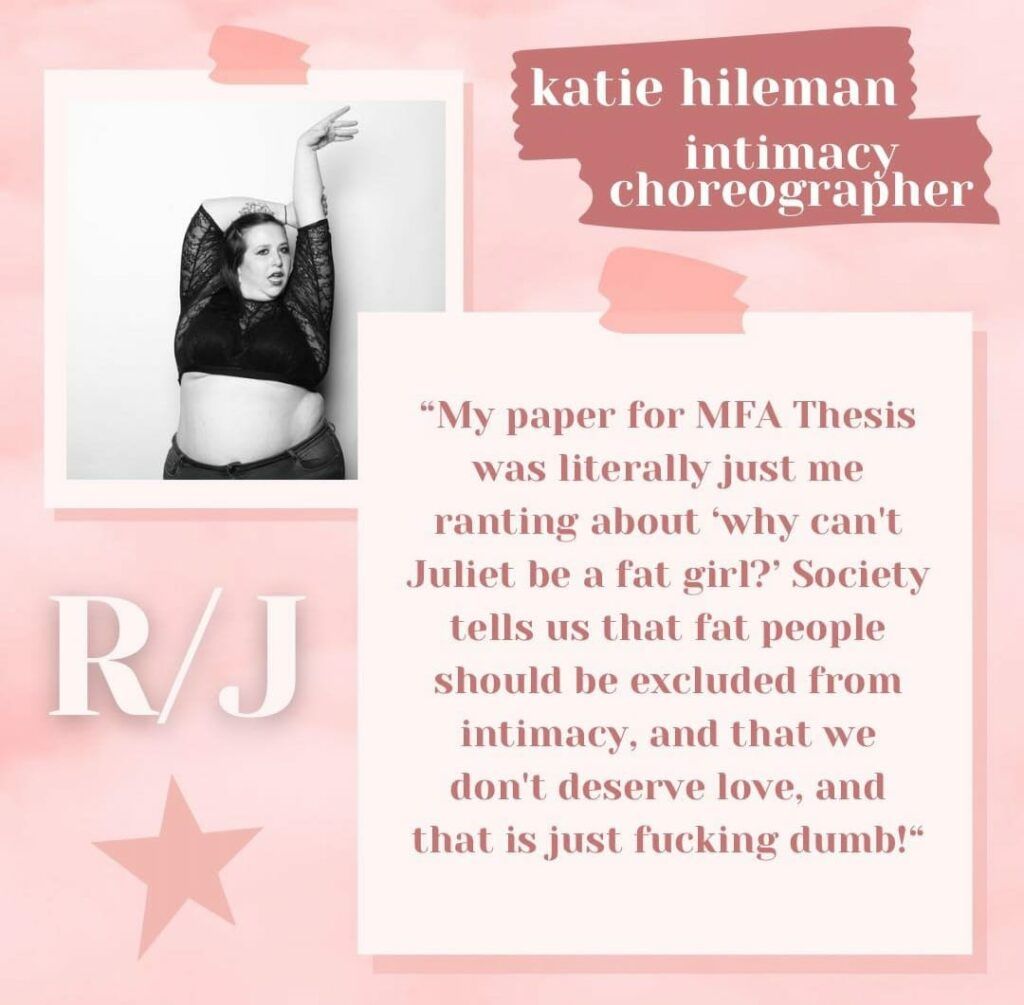
Another line of Romeo’s, “I didn’t know I could feel this- that I could be happy.” This is another that really impacted the audience. When it comes to any marginalized identity, it is implied that if you are outside of society’s “standard,” that you may never be truly happy, you may never find love.
That’s the idea that is ingrained into us growing up in a cis-het white Eurocentric beauty standard-focused society. But this is something that a lot of us grow to recognize isn’t actually a universal truth. You can absolutely be happy and loved despite what others claim.
When you can truly be you and accept yourself for who you are, that is true happiness.
Why Plus Size and Queer Media Representation Matters
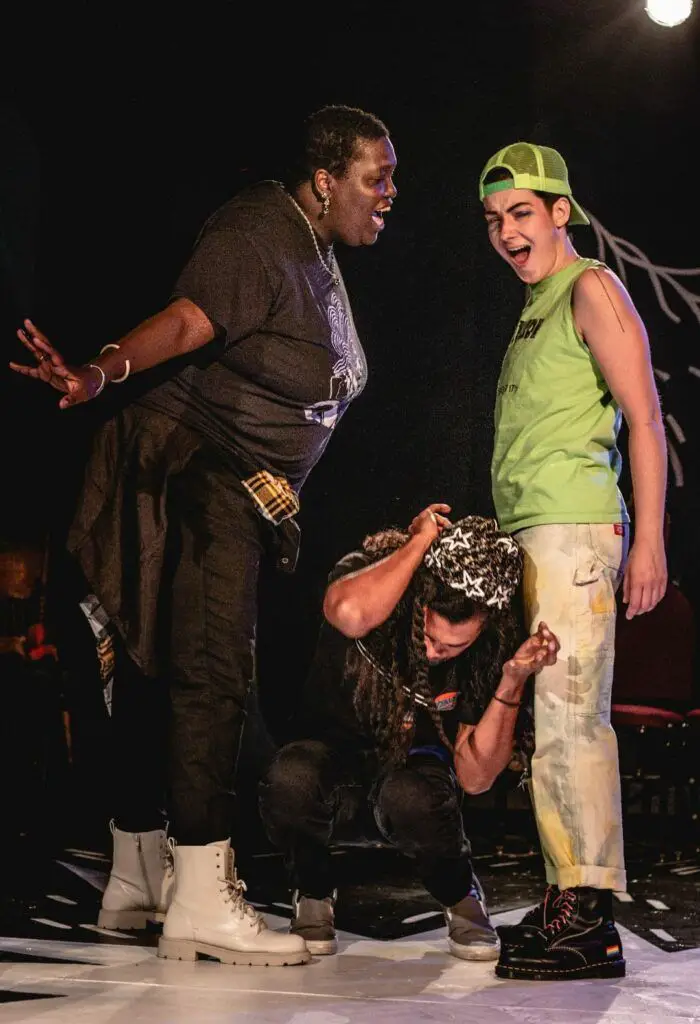
This is why representation in media, and more importantly good representation, is so important. A 2022 report found that despite most women in the US being plus size, fat women only made up 6.7% of characters in the most popular films over the last 10 years. A similar figure was found for the most popular TV shows.
A 2020 survey by GLAAD and P&G found that queer representation increased acceptance by up to 45%. LGBTQIA+ representation only accounts for 6.7% of the top 10 recurring cast members across the top 300 broadcast, cable, and streaming shows from 2019. It is noted that Latinx and BIPOC femmes are underrepresented.
Intersectionality, the idea that different facets of a person’s identity can affect their privileges or disadvantages in life, is an important lens through which we should analyze representation. This can include race, gender, etc. and how they overlap across systems of discrimination. Queer people come in all shapes, sizes, and colors!
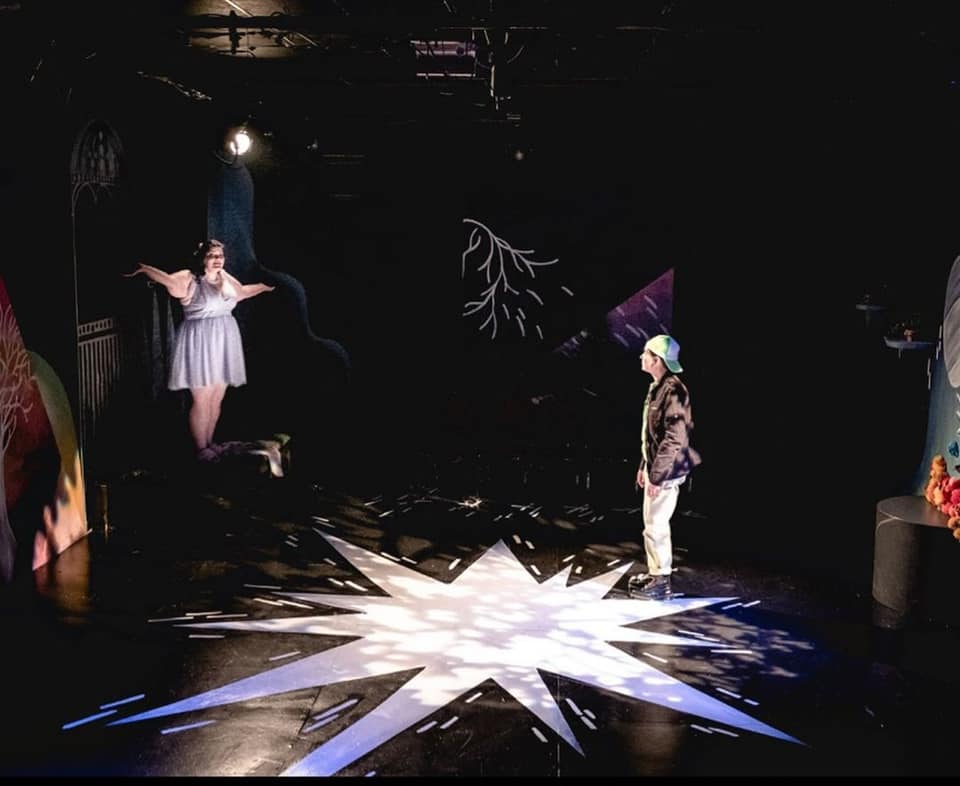
Imagine if you would have grown up with fat or queer or more actors of color or trans actors as role models? Can you imagine how many of us would not feel “othered” by our peers?
Can you imagine how much more accepting society could be if we normalized all bodies?
This is what we need! More inclusion of marginalized identities and bodies across all media.
More About Strand
Strand Theater Company is the only brick-and-mortar, live theater venue in Baltimore City solely dedicated to the work of amplifying women’s voices onstage and off!
Located in the vibrant Hamilton-Lauraville neighborhood, Strand is a 501c3 non-profit that is woman-owned and dedicated to inclusivity, accessibility, and community. Want to learn more?

